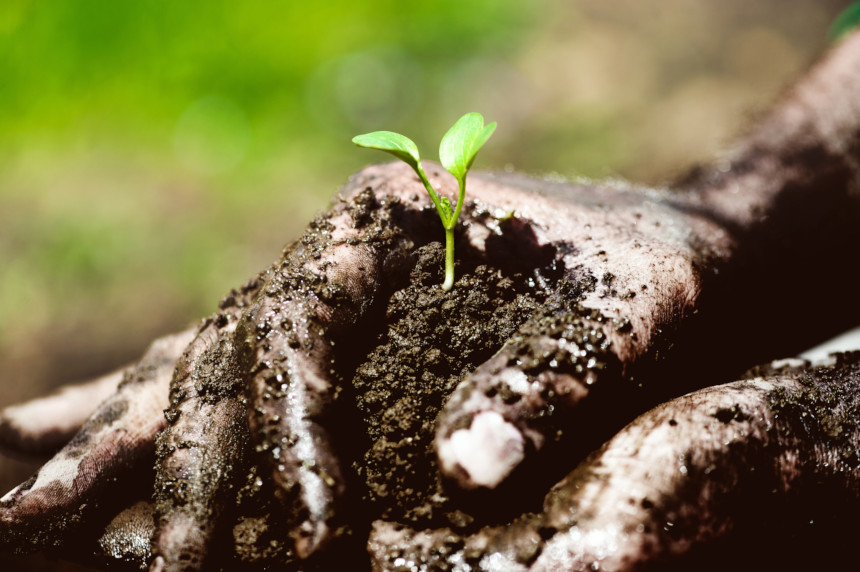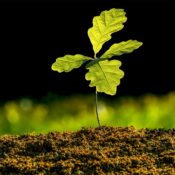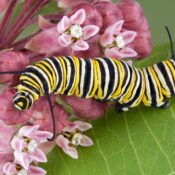One sweltering August afternoon when I was a kid, a family friend named Warren squatted down to kid level beneath the six-foot stalk of a yellow flower and pulled it up by its roots. “That’s a Jerusalem Artichoke,” he said. Warren wiped the dirt from the bulb on his jeans and cut slices for us with his pocket-knife. The three of us stood in that Westchester field and ate our nutty crisp slices of Jerusalem Artichoke, faintly gritty with the soil that still clung to it. It was exciting to be standing there with a friend, eating something pulled up out of the ground. It was magic.
e. e cummings wrote a poem about spring, about the glorious, dangerous sexuality inherent in the season. He called spring “mud-luscious” — a convergence of the childlike love of jumping in puddles and the adult delight in sensual messiness. The power of spring is both beautiful and terrifying, both “puddle-wonderful” and like a pied piper, a siren song, luring us into the forest of procreative fecundity with all its mess and confusion. Where is the line between good and bad, poison ivy and clematis, reproduction and lust? One man’s weed is another man’s chamomile flower. We might consider a dandelion homely, but to a bee, a dandelion looks like home.
Blurred boundaries are at the heart of gardening. It’s not for the faint of heart, not for those who like clean fingernails or predictability. The best kind of gardening, my kind, is profuse, joyful, and filthy. It is the apple seed that sprouts without permission in the compost bin. It is the hundreds of seeds that grow but fail before making it to flower. It is about trying to create life, and the delightful slime, muck, and failure that accompanies creation. If you don’t think Nature is sexually charged, stand next to my pear tree. You can hear the white blossoms open themselves wide, and whisper throatily to each fat bee that zig-zags past, “Pick me.”
Gardeners exult in the mud of spring, knowing that it is in the mud that life takes hold, and that a healthy dose of utter chaos is good. A gardener knows to throw down more seeds than needed. There is the expected hardening-off of plants in the cold of early spring, and thinning that comes later when too many seeds sprout. Gardeners love the wealth of too much arugula in the garden, with lettuce leaves as thick as wet dollar bills. We tip-toe around like criminals, filling plastic bags and hanging them, sagging, on neighbors’ doorknobs. Ring and run.
If gardeners are artists, I am more Jackson Pollock than Rembrandt. I court the unpredictability of the garden, and of life. While I shake my fist at the groundhogs, I hope guests will show up unannounced on Sunday mornings. I like thunder and thick raindrops spattered on my eyeglasses, and the cooling cup of coffee that sits on the porch because I got up to see where the cardinals were nesting. I like to have plants by the front door that need planting, and I take comfort from the bowl of rolled up, half-used seed packets from last summer that sit on the counter next to my gin bottles, plural. I literally dance when I dig up the first potato each year, and swoon when the hibiscus-like flower the size of a dinner plate opens. Passion feeds my garden as surely as manure does.
There are tidy gardeners out there who grow more efficiently than I do. They harvest gorgeous red tomatoes, and their rows of produce are weed-free and evenly spaced. I respect that, but I can’t be what I am not. I don’t completely trust people with clutter-free houses. Where do they put the broken egg they found if not on the windowsill next to the rusted key?
I am fed by the smell of dirt, of wet coffee grounds and banana peels in the compost heap. I swoon to think that my pillow smells of the back of my husband’s neck. The twin smells of skunk cabbage in a cold stream, and the steam that rises from a boiling pot of maple sap in early April are full of joyful abundance, of children and the old men they’ll become, of the future and the ooze we all crawled out of eons ago. Could there be anything more sensuous than shoving glove-less fingertips way down in the dirt under the roots of a May Apple and, wiggling them there like earthworms, pulling the roots up to replant by the pond?
A friend told me once that she hated sex, that it was all mess and disappointment. All I could think was that she would make a terrible gardener.
Do you hear that sound? It’s Life calling in all of its chaotic glory. There are thousands of spring peepers by my pond, out-singing one another to find a mate, and frogs, plump-full of eggs. There are pears about to ripen and fall amid drunken, greedy wasps. That white iris is so heavy with rain on its petals that it looks like it’s about to lie down in the soaking wet. Bend over and listen. Come here, it seems to say. Walk with me here beneath the oak. Let your socks get wet while we clasp our slippery hands together. You know you want to. You know you do.
N. West Moss‘s most recent book is Flesh and Blood: Reflections on Infertility, Family, and Creating a Bountiful Life: A Memoir, from Algonquin Books. She has a short story collection called The Subway Stops at Bryant Park, and her essays and short stories have appeared in the New York Times, Salon, and McSweeney’s, among other publications. The winner of the Post’s Great American Fiction Contest holds an MFA in creative writing, and has a middle grade novel called Birdy forthcoming from Little, Brown. She can be found on Twitter @scoutandhuck and on Instagram @NWestMoss.
Featured image: Shutterstock
Become a Saturday Evening Post member and enjoy unlimited access. Subscribe now



